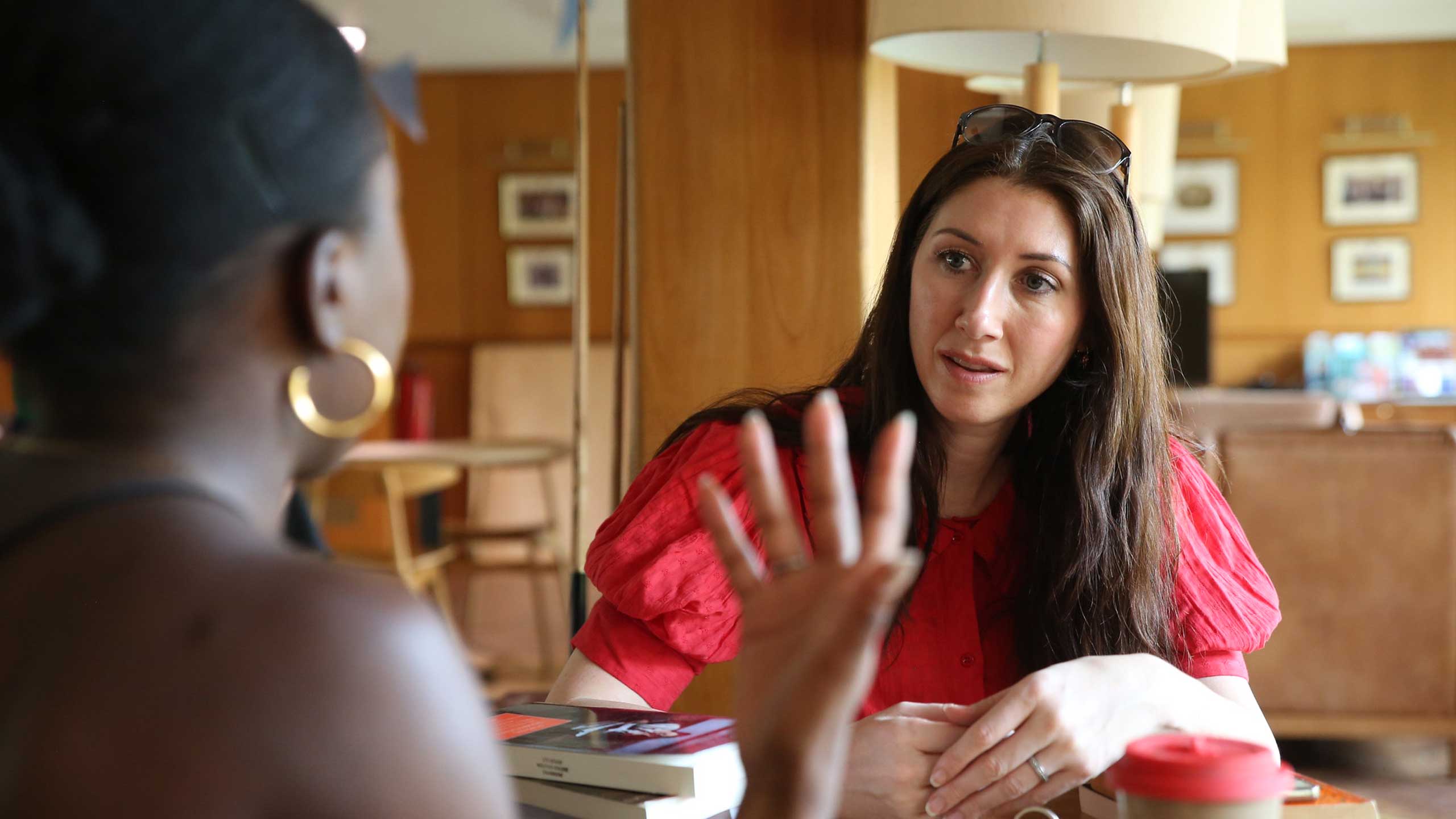Applying to Cambridge – advice for mature applicants
What are we looking for?

At the University of Cambridge, our Admissions Tutors are looking for students who they believe have the academic ability and potential to flourish at the University. In this article, some of our Admissions Tutors give you their advice.
Dr Martin Thompson
Director of Undergraduate Admissions
"Your qualifications must be relevant to the course you’ve applied for, and recent (completed within the last two years). If your existing qualifications are older, you will need to refresh your knowledge and academic skills with a short formal course. Providers such as the Open University or Professional and Continuing Education (PACE) are particularly suitable.
Some of our students have taken one year courses, such as an Access qualification. The mature Colleges have a later application deadline in January (for some arts, humanities and social sciences subjects) for students who are on a one year course and therefore find it difficult to have the right academic evidence and support of their referees to meet the standard October UCAS application deadline. Find out more about the second application deadline.
Prior attainment is something that often worries mature students, but we're more interested in your recent and relevant experience and qualifications.
If you’re applying to university as a mature applicant, my main tip would be to get in touch with an Admissions Tutor at a mature College (even if you want to apply to a standard-age College) before applying. If you have any questions, particularly about whether your qualifications meet the entry requirements, we’d be happy to help."
Dr Martin Thompson
You can find details of Admissions Tutors on the mature College websites:
Dr Seb Falk
Admissions Tutor
Girton College
"I get to see applications from a huge variety of candidates. Each subject has different expectations, for example, what makes a good Law student will be different to what makes a successful Linguistics student; Economists need to be strong at Maths, but English applicants able to analyse closely a piece of writing.
My top tip for potential applicants is always do your research and work out which is the right subject for you: are you genuinely interested in it? Are you motivated enough to take on the challenge of dedicating three or four years to studying it? What are the requirements to get on to the course and are you studying the right subjects, if any are required? Take a look at the descriptions of the subjects on our webpages and see if you like what you see and if you are the right fit.
It's important to work hard towards those high grades that we hope to see. As an Admissions Tutor, I’ll be looking for evidence of academic excellence, but remember that doesn’t mean top grades in every exam — nobody’s perfect — but a good profile of high grades both achieved and predicted."
Dr Seb Falk
Dr Susan Haines
Admissions Tutor
Queens' College
"If you are thinking of applying to start a degree course, you might already have a firm idea of what subject you want to study, or you might still be a bit unsure. Now is the perfect time to explore your potential chosen subject area beyond what you have learnt at school or college. We call this "super-curricular" exploration, and there are lots of free ways to do it: books, websites, films, podcasts...you can find some suggestions on the Cambridge website.
It's also a good idea to start researching different degree courses and checking that they fit well with your interests and learning style. All of this should help you to begin writing your UCAS personal statement; when we assess an application, this is the place we look for evidence that a student really wants to learn about the subject they have applied for. You can find some useful guidance on what to include on the UCAS website as well as Cambridge-specific advice on the University's website."
Dr Susan Haines
We assess everyone individually

We look for different things in different people for different courses. All Admissions Tutors are looking for the students who they believe:
1. Have the most academic ability and potential
You should be aiming for excellent examination grades. You can check typical A level/IB offers and subject requirements for your year of entry on the relevant course pages before you apply.
2. Will benefit from the Cambridge learning environment
Our ideal Cambridge student can think critically and independently. You should be open to new ideas, be able to logically work through problems, and be motivated and committed to your studies. The teaching style means that you will become a very efficient learner, working to tight deadlines, a skill which will serve you for life.
3. Are best suited to the course they apply for
Finally, we're looking for students who really want to learn about the subject they've applied for. Think carefully about your options and which course(s) and subject area(s) you're most enthused and inspired about studying for the next few years.
What's the most important part of my application?
We aim to give applicants as many opportunities as possible to demonstrate their strengths and potential; you can be sure that your application will be considered carefully and fairly.
Each application is considered individually and holistically, using all of the following information:
- academic record
- school/college reference
- personal statement
- written work submitted
- written assessment
- contextual data
- interview
No single part of the application is considered in isolation; for example, a student’s performance at interview alone doesn’t determine the outcome of their application.

"If we offer the right course for you and you think you have a chance of achieving our typical offer grades, then go for it - we look forward to seeing your application! Don't let the prospect of not getting a place put you off applying. We can't offer you a place if you don't apply to us!"
Dr Seb Falk
Hear more tips on making a successful application from Dr Martin Thompson:
The information on this page is correct at the time of publishing.
It’s very important that prospective students check our website regularly for up-to-date information before submitting an application, and again before accepting an offer to study.
Last reviewed: July 2025.







